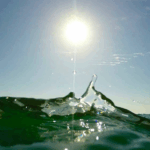Could the ocean’s temperature unlock early warnings for deadly dengue fever? A groundbreaking study by Chinese scientists says yes! Researchers have discovered that sea surface temperature anomalies in the tropical Indian Ocean can predict the scale of dengue outbreaks worldwide — a discovery that could save countless lives. 🌡️🦠
Published in the journal Science, the study reveals that unusual warming or cooling patterns in this region act as a \"climate crystal ball\" for dengue risks. This link offers governments and health agencies up to nine months of advance notice to prepare for outbreaks, stockpile vaccines, and launch awareness campaigns. 💡
Dengue, a mosquito-borne virus affecting over 100 countries, has seen a dramatic rise in cases due to climate change and urbanization. Asia — home to 70% of global cases — stands to benefit significantly from this research. 🏙️🌏
\"This isn’t just about data,\" said lead researcher Dr. Li Wei. \"It’s about turning climate signals into actionable solutions.\" The team analyzed decades of climate and health data, combining satellite tech with AI modeling to crack the code. 🤖📡
For travelers, entrepreneurs, and health professionals, this breakthrough means smarter risk assessments. Next steps? Scientists aim to refine predictions for specific regions and integrate real-time monitoring systems. 🌐🔬
Reference(s):
Sea surface temperature anomalies can predict global dengue trends
cgtn.com




